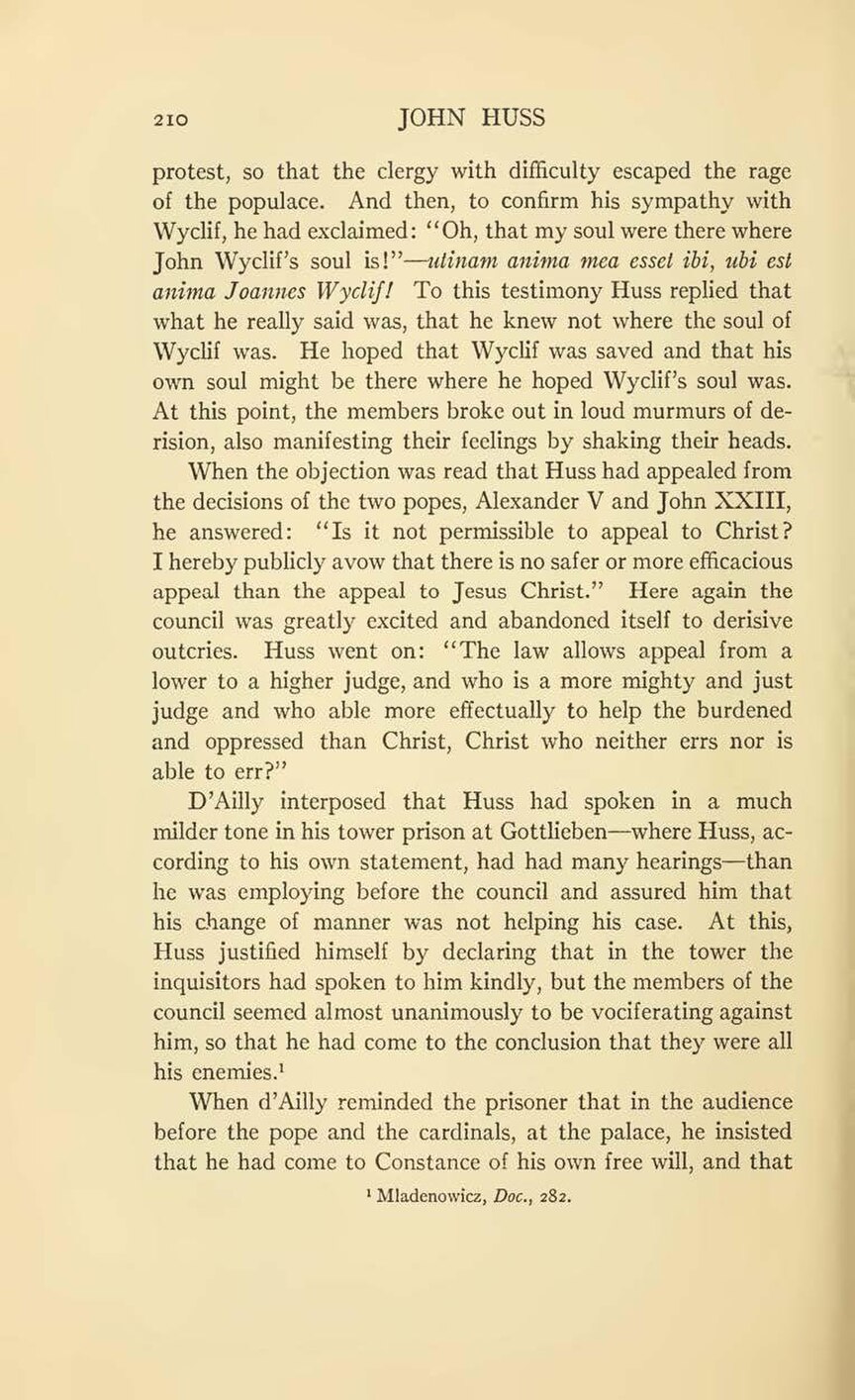protest, so that the clergy with difficulty escaped the rage of the populace. And then, to confirm his sympathy with Wyclif, he had exclaimed: “Oh, that my soul were there where John Wyclif’s soul is!”—utinam anima mea esset ibi, ubi est anima Joannes Wyclif! To this testimony Huss replied that what he really said was, that he knew not where the soul of Wyclif was. He hoped that Wyclif was saved and that his own soul might be there where he hoped Wyclif’s soul was. At this point, the members broke out in loud murmurs of derision, also manifesting their feelings by shaking their heads.
When the objection was read that Huss had appealed from the decisions of the two popes, Alexander V and John XXIII, he answered: “Is it not permissible to appeal to Christ? I hereby publicly avow that there is no safer or more efficacious appeal than the appeal to Jesus Christ.” Here again the council was greatly excited and abandoned itself to derisive outcries. Huss went on: “The law allows appeal from a lower to a higher judge, and who is a more mighty and just judge and who able more effectually to help the burdened and oppressed than Christ, Christ who neither errs nor is able to err?”
D’Ailly interposed that Huss had spoken in a much milder tone in his tower prison at Gottlieben—where Huss, according to his own statement, had had many hearings—than he was employing before the council and assured him that his change of manner was not helping his case. At this, Huss justified himself by declaring that in the tower the inquisitors had spoken to him kindly, but the members of the council seemed almost unanimously to be vociferating against him, so that he had come to the conclusion that they were all his enemies.[1]
When d’Ailly reminded the prisoner that in the audience before the pope and the cardinals, at the palace, he insisted that he had come to Constance of his own free will, and that
- ↑ Mladenowicz, Doc., 282.
